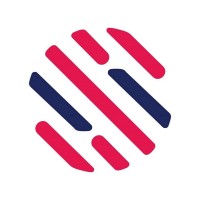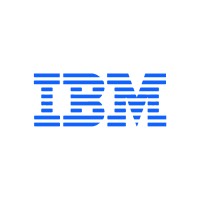
HPE Aruba Networking Company Cyber Security Posture
hpe.comHPE Aruba Networking designs and delivers Mobility-Defined Networks that empower a new generation of tech-savvy users.
HAN Company Details
aruba-a-hewlett-packard-enterprise-company
5632 employees
249175.0
541
IT Services and IT Consulting
hpe.com
Scan still pending
HPE_2803477
In-progress
Between 900 and 1000
This score is AI-generated and less favored by cyber insurers, who prefer the TPRM score.
 HAN Global Score
HAN Global Score.png)

HPE Aruba Networking Company Scoring based on AI Models
| Model Name | Date | Description | Current Score Difference | Score |
|---|---|---|---|---|
| AVERAGE-Industry | 03-12-2025 | This score represents the average cybersecurity rating of companies already scanned within the same industry. It provides a benchmark to compare an individual company's security posture against its industry peers. | N/A | Between 900 and 1000 |
HPE Aruba Networking Company Cyber Security News & History
| Entity | Type | Severity | Impact | Seen | Url ID | Details | View |
|---|---|---|---|---|---|---|---|
| Aruba, a Hewlett Packard Enterprise company | Breach | 100 | 5 | 11/2021 | ARU826111122 | Link | |
Rankiteo Explanation : Attack threatening the organization's existenceDescription: Aruba Central network monitoring platforms suffered from a data breach incident that allowed a threat actor to access collected data about monitored devices and their locations. The exposed information contained two datasets, one for network analytics and the other for Aruba Central's 'Contract Tracing' feature. "One dataset ("network analytics") includes network telemetry information about Wi-Fi client devices connected to customer Wi-Fi networks for the majority of Aruba Central customers. Another dataset called "contact tracing" comprised location-specific information on Wi-Fi client devices, such as which devices were close to other Wi-Fi client devices. The compromised information includes MAC addresses, IP addresses, device operating system type and hostname, and some usernames. The contact tracing data also included users’ Access Point (AP) name, proximity, and duration of time connected to that AP. They said it's not necessary to change passwords, change encryption keys, or modify your network setup because security-sensitive data was not compromised. In order to stop reoccurring problems, HPE said they are modifying how they safeguard and keep access keys. | |||||||
| Hewlett Packard Enterprise | Breach | 85 | 4 | 2/2025 | HEW000020925 | Link | |
Rankiteo Explanation : Attack with significant impact with customers data leaksDescription: In a significant cyber incident, Hewlett Packard Enterprise (HPE) suffered a breach attributed to Russian state-backed hackers. The attackers infiltrated HPE’s systems in May 2023, which included email mailboxes and Microsoft SharePoint systems, leading to the theft of sensitive personal information. This data comprised Social Security numbers, driver’s license details, and credit card numbers. The breach reflects the growing trend of hostile nations engaging in cyber-espionage and underscores the importance of robust security measures to protect personal data. | |||||||
| Hewlett Packard Enterprise (HPE) | Vulnerability | 100 | 5 | 3/2025 | HEW416030525 | Link | |
Rankiteo Explanation : Attack threatening the organization’s existenceDescription: A critical vulnerability in HPE's Insight Remote Support tool allows attackers to execute code remotely on affected systems without authentication. Identified as CVE-2024-53676, the vulnerability is due to improper validation of file paths, letting attackers overwrite system files and execute arbitrary payloads with SYSTEM-level privileges. While there's a need for valid device registration credentials, and the Java process must have appropriate write permissions, a proof-of-concept exploit is available publicly, and active exploitation is considered imminent. HPE has yet to release an official patch, urging users to isolate management interfaces and monitor for unauthorized file write operations as interim mitigation. | |||||||
| Hewlett Packard Enterprise | Vulnerability | 100 | 3 | 3/2025 | HEW411030525 | Link | |
Rankiteo Explanation : Attack with significant impact with internal employee data leaksDescription: HPE's Insight Remote Support tool has a critical vulnerability tracked as CVE-2024-53676, potentially allowing unauthenticated attackers to execute code on affected systems. The flaw allows for directory traversal attacks to overwrite system files, leading to SYSTEM-level privileges being compromised. There are currently no patches available. This vulnerability exposes organizations to significant risks, as attackers can deploy malicious payloads without authentication. The current suggested mitigations include isolating management interfaces, monitoring file operations, and analyzing SOAP traffic for suspicious activities. As exploit techniques are being refined, timely and stringent defensive measures are essential to prevent possible active exploitations that could severely impact operations and sensitive data. | |||||||
HPE Aruba Networking Company Subsidiaries

HPE Aruba Networking designs and delivers Mobility-Defined Networks that empower a new generation of tech-savvy users.
Access Data Using Our API

Get company history
.png)
HAN Cyber Security News
HPE GreenLake Cloud Gets ‘Emergency Switch’ As HPE Aruba Networking Central Gets ‘Next-Gen’ NAC Infusion
HPE is stepping up its cloud security posture with new zero trust and network access control (NAC) features being built into HPE GreenLake ...
HPE Strengthens Cloud and Networking Security with Zero Trust and Threat-Adaptive Innovations
Hewlett Packard Enterprise redefines cloud-based security with expansive solutions for zero trust networking and private cloud operations.
HPE strengthens hybrid cloud and connectivity with Aruba Networking and GreenLake security upgrades
HPE expands Aruba Networking and GreenLake to help enterprises secure connectivity and hybrid cloud with zero trust protection.
HPE Expands Aruba Networking Central with AI-Driven Security and Flexible Deployment
HPE's Aruba Central now offers AI-powered, zero trust security with four deployment options, meeting evolving compliance, sovereignty, ...
HPE gives Aruba Networking and GreenLake a security boost
During the RSAC 2025 Conference, HPE announced several smaller and larger security additions to both HPE Aruba Networking and HPE GreenLake.
HPE Aruba boosts NAC security, adds GreenLake 'kill switch'
HPE Aruba Networking platforms gain tighter access controls, new zero-trust capabilities, and DDoS defense updates.
HPE eyes enterprise data sovereignty gains with Aruba Networking Central expansion
HPE has announced a sweeping expansion of its Aruba Networking Central platform, offering users a raft of new features focused on driving ...
Security Upgrades Available for 3 HPE Aruba Networking Bugs
HPE Aruba Networking fixed three critical vulnerabilities found in its systems that could allow unauthenticated attackers remote code ...
How HPE’s IoT Security Platform Transforms Retail Networks
HPE unveils IoT security platform to revolutionise retail cybersecurity, enhance omnichannel operations and fortify network defenses against ...

HAN Similar Companies

Sutherland
Artificial Intelligence. Automation. Cloud engineering. Advanced analytics. For business leaders, these are key factors of success. For us, they’re our core expertise. At Sutherland, we are a leading global business and digital transformation partner. Our services span a diversified range of categ

IBM
At IBM, we do more than work. We create. We create as technologists, developers, and engineers. We create with our partners. We create with our competitors. If you're searching for ways to make the world work better through technology and infrastructure, software and consulting, then we want to work

EPAM Systems
Since 1993, EPAM Systems, Inc. (NYSE: EPAM) has used its software engineering expertise to become a leading global provider of digital engineering, cloud and AI-enabled transformation services, and a leading business and experience consulting partner for global enterprises and ambitious startups. We

Zoom
Bring teams together, reimagine workspaces, engage new audiences, and delight your customers –– all on the Zoom AI-first work platform you know and love. 💙 Zoomies help people stay connected so they can get more done together. We set out on a mission to make video communications frictionless and se

Elsevier
As a global leader in information and analytics, Elsevier helps researchers and healthcare professionals advance science and improve health outcomes for the benefit of society. We do this by facilitating insights and critical decision-making for customers across the global research and health ecosys

Minsait
We are one of the world's leading consultancies in technological services for companies and the public sector. With headquarters in Spain and presence in more than 100 countries, we combine experience in AI, data, cloud and cybersecurity to help companies and organizations generate a positive impact

Frequently Asked Questions (FAQ) on Cybersecurity Incidents
HAN CyberSecurity History Information
Total Incidents: According to Rankiteo, HAN has faced 4 incidents in the past.
Incident Types: The types of cybersecurity incidents that have occurred include ['Breach', 'Vulnerability'].
Total Financial Loss: The total financial loss from these incidents is estimated to be {total_financial_loss}.
Cybersecurity Posture: The company's overall cybersecurity posture is described as HPE Aruba Networking designs and delivers Mobility-Defined Networks that empower a new generation of tech-savvy users..
Detection and Response: The company detects and responds to cybersecurity incidents through {description_of_detection_and_response_process}.
Incident Details
Incident 1: Ransomware Attack
Title: {Incident_Title}
Description: {Brief_description_of_the_incident}
Date Detected: {Detection_Date}
Date Publicly Disclosed: {Disclosure_Date}
Date Resolved: {Resolution_Date}
Type: {Type_of_Attack}
Attack Vector: {Attack_Vector}
Vulnerability Exploited: {Vulnerability}
Threat Actor: {Threat_Actor}
Motivation: {Motivation}
Incident 2: Data Breach
Title: {Incident_Title}
Description: {Brief_description_of_the_incident}
Date Detected: {Detection_Date}
Date Publicly Disclosed: {Disclosure_Date}
Date Resolved: {Resolution_Date}
Type: {Type_of_Attack}
Attack Vector: {Attack_Vector}
Vulnerability Exploited: {Vulnerability}
Threat Actor: {Threat_Actor}
Motivation: {Motivation}
Common Attack Types: The most common types of attacks the company has faced are ['Breach', 'Vulnerability'].
Identification of Attack Vectors: The company identifies the attack vectors used in incidents through {description_of_identification_process}.
Impact of the Incidents
Incident 1: Ransomware Attack
Financial Loss: {Financial_Loss}
Data Compromised: {Data_Compromised}
Systems Affected: {Systems_Affected}
Downtime: {Downtime}
Operational Impact: {Operational_Impact}
Conversion Rate Impact: {Conversion_Rate_Impact}
Revenue Loss: {Revenue_Loss}
Customer Complaints: {Customer_Complaints}
Brand Reputation Impact: {Brand_Reputation_Impact}
Legal Liabilities: {Legal_Liabilities}
Identity Theft Risk: {Identity_Theft_Risk}
Payment Information Risk: {Payment_Information_Risk}
Incident 2: Data Breach
Financial Loss: {Financial_Loss}
Data Compromised: {Data_Compromised}
Systems Affected: {Systems_Affected}
Downtime: {Downtime}
Operational Impact: {Operational_Impact}
Conversion Rate Impact: {Conversion_Rate_Impact}
Revenue Loss: {Revenue_Loss}
Customer Complaints: {Customer_Complaints}
Brand Reputation Impact: {Brand_Reputation_Impact}
Legal Liabilities: {Legal_Liabilities}
Identity Theft Risk: {Identity_Theft_Risk}
Payment Information Risk: {Payment_Information_Risk}
Average Financial Loss: The average financial loss per incident is {average_financial_loss}.
Commonly Compromised Data Types: The types of data most commonly compromised in incidents are {list_of_commonly_compromised_data_types}.
Incident 1: Ransomware Attack
Entity Name: {Entity_Name}
Entity Type: {Entity_Type}
Industry: {Industry}
Location: {Location}
Size: {Size}
Customers Affected: {Customers_Affected}
Incident 2: Data Breach
Entity Name: {Entity_Name}
Entity Type: {Entity_Type}
Industry: {Industry}
Location: {Location}
Size: {Size}
Customers Affected: {Customers_Affected}
Response to the Incidents
Incident 1: Ransomware Attack
Incident Response Plan Activated: {Yes/No}
Third Party Assistance: {Yes/No}
Law Enforcement Notified: {Yes/No}
Containment Measures: {Containment_Measures}
Remediation Measures: {Remediation_Measures}
Recovery Measures: {Recovery_Measures}
Communication Strategy: {Communication_Strategy}
Adaptive Behavioral WAF: {Adaptive_Behavioral_WAF}
On-Demand Scrubbing Services: {On_Demand_Scrubbing_Services}
Network Segmentation: {Network_Segmentation}
Enhanced Monitoring: {Enhanced_Monitoring}
Incident 2: Data Breach
Incident Response Plan Activated: {Yes/No}
Third Party Assistance: {Yes/No}
Law Enforcement Notified: {Yes/No}
Containment Measures: {Containment_Measures}
Remediation Measures: {Remediation_Measures}
Recovery Measures: {Recovery_Measures}
Communication Strategy: {Communication_Strategy}
Adaptive Behavioral WAF: {Adaptive_Behavioral_WAF}
On-Demand Scrubbing Services: {On_Demand_Scrubbing_Services}
Network Segmentation: {Network_Segmentation}
Enhanced Monitoring: {Enhanced_Monitoring}
Incident Response Plan: The company's incident response plan is described as {description_of_incident_response_plan}.
Third-Party Assistance: The company involves third-party assistance in incident response through {description_of_third_party_involvement}.
Data Breach Information
Incident 2: Data Breach
Type of Data Compromised: {Type_of_Data}
Number of Records Exposed: {Number_of_Records}
Sensitivity of Data: {Sensitivity_of_Data}
Data Exfiltration: {Yes/No}
Data Encryption: {Yes/No}
File Types Exposed: {File_Types}
Personally Identifiable Information: {Yes/No}
Prevention of Data Exfiltration: The company takes the following measures to prevent data exfiltration: {description_of_prevention_measures}.
Handling of PII Incidents: The company handles incidents involving personally identifiable information (PII) through {description_of_handling_process}.
Ransomware Information
Incident 1: Ransomware Attack
Ransom Demanded: {Ransom_Amount}
Ransom Paid: {Ransom_Paid}
Ransomware Strain: {Ransomware_Strain}
Data Encryption: {Yes/No}
Data Exfiltration: {Yes/No}
Ransom Payment Policy: The company's policy on paying ransoms in ransomware incidents is described as {description_of_ransom_payment_policy}.
Data Recovery from Ransomware: The company recovers data encrypted by ransomware through {description_of_data_recovery_process}.
Regulatory Compliance
Incident 1: Ransomware Attack
Regulations Violated: {Regulations_Violated}
Fines Imposed: {Fines_Imposed}
Legal Actions: {Legal_Actions}
Regulatory Notifications: {Regulatory_Notifications}
Incident 2: Data Breach
Regulations Violated: {Regulations_Violated}
Fines Imposed: {Fines_Imposed}
Legal Actions: {Legal_Actions}
Regulatory Notifications: {Regulatory_Notifications}
Regulatory Frameworks: The company complies with the following regulatory frameworks regarding cybersecurity: {list_of_regulatory_frameworks}.
Ensuring Regulatory Compliance: The company ensures compliance with regulatory requirements through {description_of_compliance_measures}.
Lessons Learned and Recommendations
Incident 1: Ransomware Attack
Lessons Learned: {Lessons_Learned}
Incident 2: Data Breach
Lessons Learned: {Lessons_Learned}
Incident 1: Ransomware Attack
Recommendations: {Recommendations}
Incident 2: Data Breach
Recommendations: {Recommendations}
Key Lessons Learned: The key lessons learned from past incidents are {list_of_key_lessons_learned}.
Implemented Recommendations: The company has implemented the following recommendations to improve cybersecurity: {list_of_implemented_recommendations}.
References
Additional Resources: Stakeholders can find additional resources on cybersecurity best practices at {list_of_additional_resources}.
Investigation Status
Incident 1: Ransomware Attack
Investigation Status: {Investigation_Status}
Incident 2: Data Breach
Investigation Status: {Investigation_Status}
Communication of Investigation Status: The company communicates the status of incident investigations to stakeholders through {description_of_communication_process}.
Stakeholder and Customer Advisories
Incident 1: Ransomware Attack
Stakeholder Advisories: {Stakeholder_Advisories}
Customer Advisories: {Customer_Advisories}
Incident 2: Data Breach
Stakeholder Advisories: {Stakeholder_Advisories}
Customer Advisories: {Customer_Advisories}
Advisories Provided: The company provides the following advisories to stakeholders and customers following an incident: {description_of_advisories_provided}.
Initial Access Broker
Incident 1: Ransomware Attack
Entry Point: {Entry_Point}
Reconnaissance Period: {Reconnaissance_Period}
Backdoors Established: {Backdoors_Established}
High Value Targets: {High_Value_Targets}
Data Sold on Dark Web: {Yes/No}
Incident 2: Data Breach
Entry Point: {Entry_Point}
Reconnaissance Period: {Reconnaissance_Period}
Backdoors Established: {Backdoors_Established}
High Value Targets: {High_Value_Targets}
Data Sold on Dark Web: {Yes/No}
Monitoring and Mitigation of Initial Access Brokers: The company monitors and mitigates the activities of initial access brokers through {description_of_monitoring_and_mitigation_measures}.
Post-Incident Analysis
Incident 1: Ransomware Attack
Root Causes: {Root_Causes}
Corrective Actions: {Corrective_Actions}
Incident 2: Data Breach
Root Causes: {Root_Causes}
Corrective Actions: {Corrective_Actions}
Post-Incident Analysis Process: The company's process for conducting post-incident analysis is described as {description_of_post_incident_analysis_process}.
Corrective Actions Taken: The company has taken the following corrective actions based on post-incident analysis: {list_of_corrective_actions_taken}.
Additional Questions
General Information
Ransom Payment History: The company has {paid/not_paid} ransoms in the past.
Last Ransom Demanded: The amount of the last ransom demanded was {last_ransom_amount}.
Last Attacking Group: The attacking group in the last incident was {last_attacking_group}.
Incident Details
Most Recent Incident Detected: The most recent incident detected was on {most_recent_incident_detected_date}.
Most Recent Incident Publicly Disclosed: The most recent incident publicly disclosed was on {most_recent_incident_publicly_disclosed_date}.
Most Recent Incident Resolved: The most recent incident resolved was on {most_recent_incident_resolved_date}.
Impact of the Incidents
Highest Financial Loss: The highest financial loss from an incident was {highest_financial_loss}.
Most Significant Data Compromised: The most significant data compromised in an incident was {most_significant_data_compromised}.
Most Significant System Affected: The most significant system affected in an incident was {most_significant_system_affected}.
Response to the Incidents
Third-Party Assistance in Most Recent Incident: The third-party assistance involved in the most recent incident was {third_party_assistance_in_most_recent_incident}.
Containment Measures in Most Recent Incident: The containment measures taken in the most recent incident were {containment_measures_in_most_recent_incident}.
Data Breach Information
Most Sensitive Data Compromised: The most sensitive data compromised in a breach was {most_sensitive_data_compromised}.
Number of Records Exposed: The number of records exposed in the most significant breach was {number_of_records_exposed}.
Ransomware Information
Highest Ransom Demanded: The highest ransom demanded in a ransomware incident was {highest_ransom_demanded}.
Highest Ransom Paid: The highest ransom paid in a ransomware incident was {highest_ransom_paid}.
Regulatory Compliance
Highest Fine Imposed: The highest fine imposed for a regulatory violation was {highest_fine_imposed}.
Most Significant Legal Action: The most significant legal action taken for a regulatory violation was {most_significant_legal_action}.
Lessons Learned and Recommendations
Most Significant Lesson Learned: The most significant lesson learned from past incidents was {most_significant_lesson_learned}.
Most Significant Recommendation Implemented: The most significant recommendation implemented to improve cybersecurity was {most_significant_recommendation_implemented}.
References
Most Recent Source: The most recent source of information about an incident is {most_recent_source}.
Most Recent URL for Additional Resources: The most recent URL for additional resources on cybersecurity best practices is {most_recent_url}.
Investigation Status
Current Status of Most Recent Investigation: The current status of the most recent investigation is {current_status_of_most_recent_investigation}.
Stakeholder and Customer Advisories
Most Recent Stakeholder Advisory: The most recent stakeholder advisory issued was {most_recent_stakeholder_advisory}.
Most Recent Customer Advisory: The most recent customer advisory issued was {most_recent_customer_advisory}.
Initial Access Broker
Most Recent Entry Point: The most recent entry point used by an initial access broker was {most_recent_entry_point}.
Most Recent Reconnaissance Period: The most recent reconnaissance period for an incident was {most_recent_reconnaissance_period}.
Post-Incident Analysis
Most Significant Root Cause: The most significant root cause identified in post-incident analysis was {most_significant_root_cause}.
Most Significant Corrective Action: The most significant corrective action taken based on post-incident analysis was {most_significant_corrective_action}.
What Do We Measure?
















Every week, Rankiteo analyzes billions of signals to give organizations a sharper, faster view of emerging risks. With deeper, more actionable intelligence at their fingertips, security teams can outpace threat actors, respond instantly to Zero-Day attacks, and dramatically shrink their risk exposure window.
These are some of the factors we use to calculate the overall score:
Identify exposed access points, detect misconfigured SSL certificates, and uncover vulnerabilities across the network infrastructure.
Gain visibility into the software components used within an organization to detect vulnerabilities, manage risk, and ensure supply chain security.
Monitor and manage all IT assets and their configurations to ensure accurate, real-time visibility across the company's technology environment.
Leverage real-time insights on active threats, malware campaigns, and emerging vulnerabilities to proactively defend against evolving cyberattacks.




